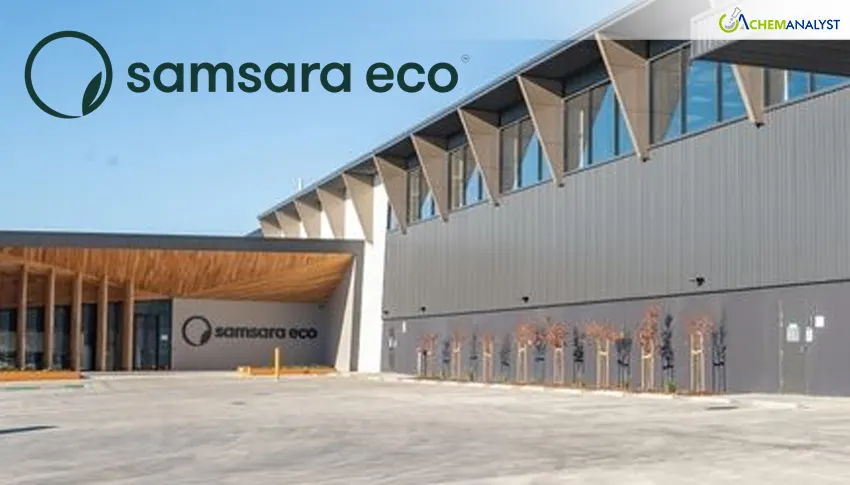Welcome To ChemAnalyst

Samsara Eco opens its first enzymatic recycling plant for nylon 66 and polyester, advancing circular textiles and preparing global-scale expansion.
Australian recycling startup Samsara Eco has inaugurated its first dedicated plant for enzymatic recycling of nylon 66 and polyester, marking a significant step toward sustainable textile solutions. Located in Jerrabomberra, New South Wales, the new site not only houses the company’s state-of-the-art recycling facility but also serves as its new headquarters and expanded enzyme production center.
At the heart of the innovation is EosEco, Samsara Eco’s proprietary enzymatic recycling technology. This process, powered by an advanced AI-driven platform, employs specially designed and patented enzymes capable of depolymerising a wide range of plastics and synthetic fibres such as PET, nylon 66, and more recently, nylon 6. Unlike traditional high-temperature recycling processes, EosEco works efficiently at relatively low temperatures, allowing for energy savings and higher material recovery rates. The system is versatile enough to process difficult feedstocks, including blended fabrics such as poly/cotton, nylon/elastane, carpet fibres, zip ties, and even airbags—materials that often end up in landfills due to limited recycling options.
Samsara Eco’s founder and CEO, Paul Riley, described the opening as a defining moment: “In just four years, we’ve advanced from laboratory-scale research through pilot and demonstration phases, and now to our first fully operational plant. The Jerrabomberra facility reflects our commitment to building a truly circular economy.” While the company has not disclosed the exact production capacity, Riley confirmed that the plant is capable of producing recycled materials equivalent to thousands of garments annually.
Importantly, the Jerrabomberra site will also function as a test bed for Samsara Eco’s upcoming large-scale commercial nylon 66 plant. This next facility, being developed in collaboration with engineering firm KBR, is designed for a capacity of 20,000 tonnes per year and is expected to open in Asia by 2028.
The recycled fibres produced at Jerrabomberra are already attracting attention from major global brands. Clothing retailer lululemon has confirmed their inclusion in upcoming product lines, while additional pilot programs are underway with partners across the textiles, automotive, and packaging sectors.
The importance of such innovation cannot be overstated. Polyester and nylon dominate global textile production, together making up nearly 60% of the world’s total fibre output. Polyester alone accounts for more than 63 million tonnes annually, covering around 80% of the synthetic fibre market. Similarly, about 4 million tonnes of nylon 66 are produced every year, prized for its durability and low friction properties in textiles and other applications.
However, the rapid growth of these synthetic fibres has also fueled a textile waste crisis. In the European Union, textile waste generation exceeds 12.6 million tonnes annually, with synthetic fibres being a significant contributor to microplastic pollution. Alarmingly, only about 13% of textile waste is recycled, and just 1% undergoes true fibre-to-fibre recycling. To address this, the EU has introduced mandatory separate textile waste collection from January 1, 2025, and aims to enforce minimum recycled fibre content in textiles by 2030.
Samsara Eco’s milestone in Jerrabomberra offers a glimpse of how science, technology, and industry partnerships can drive meaningful change in reducing plastic and textile pollution worldwide.
We use cookies to deliver the best possible experience on our website. To learn more, visit our Privacy Policy. By continuing to use this site or by closing this box, you consent to our use of cookies. More info.
